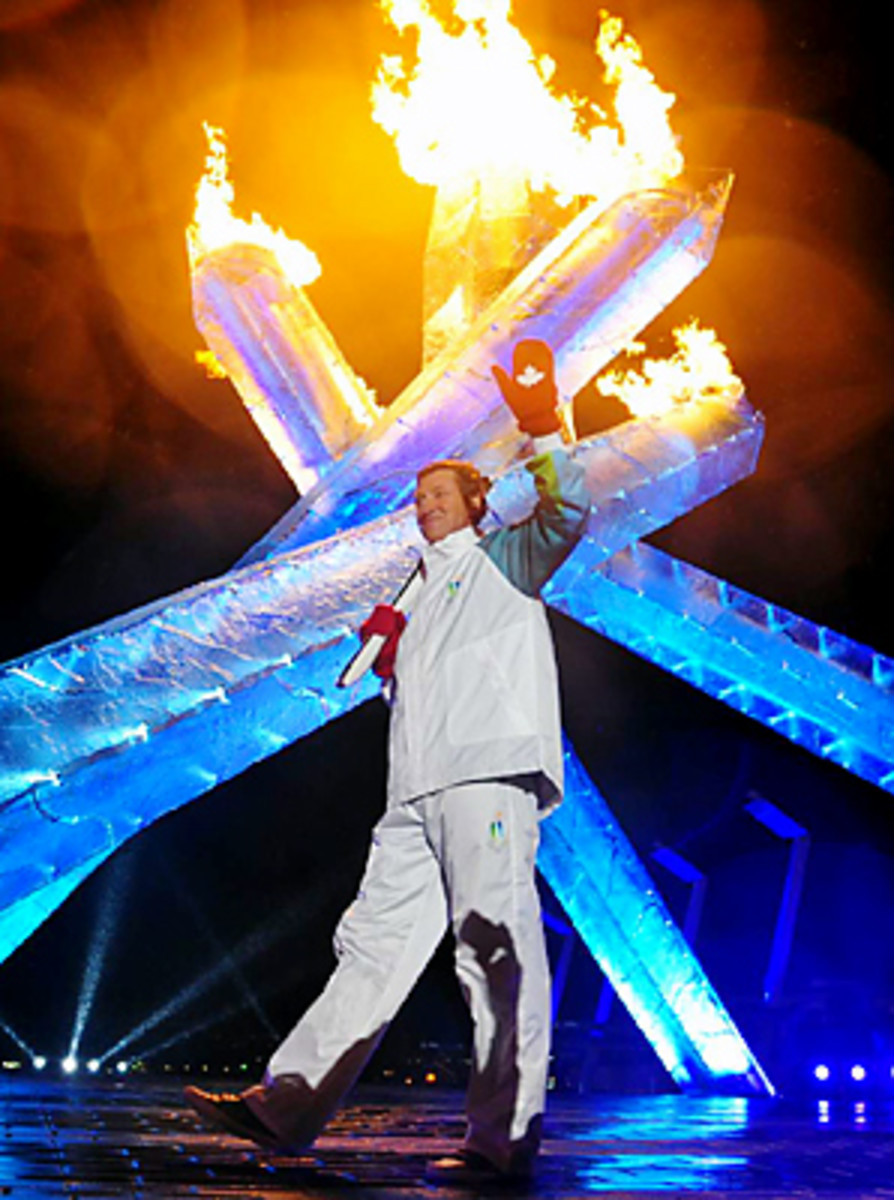Ceremony ran gamut of emotions
Abramashvili, an alpine skier from the resort town of Bakuriani in the province of Borjami, walked so slowly, trailed by the seven other Georgian athletes and three coaches who came to Vancouver to ski and skate and luge and feel what it meant to be an Olympian. Now, though, they were mourning. On Friday morning their teammate, 21-year old luger NodarKumaritashvili -- also from Borjami -- died in a horrific crash during a training run at the Whistler Sliding Center, after his body hurtled out of his gyrating sled on the final turn and collided with an unpadded steel pole.
Abramashvili, also 21, kept walking, his small nation's small team trudging behind. International Olympic Committee President JacquesRogge rose to his feet, pale and drawn; earlier in the day, he had to remove his glasses to wipe his eyes. He could barely speak about the accident. "Sorry, it's a bit difficult to ... remain composed," Rogge said. "This is a very sad day. The IOC is in deep mourning. Here you have a young athlete who lost his life pursuing his passion. He had a dream to participate in the Olympic games, he trained hard, and he had this fatal accident. I have no words to say what we feel."
The crowd of 60,600 followed Rogge's lead and stood, too, unsure whether to clap or bow their heads or do both or neither. The music pounded, the dancers hopped. The Georgians, their long red coats swaying, didn't smile. A few waved, once, and then lowered their arms. Unlike the delegations from Australia, China and Denmark that came before them, unlike the delegations from Ireland or the USA that came after, they didn't grin or wave flags. They walked only, looking like they'd give anything to stop. Of course, such somberness, such gravity, was jarring. The Olympic opening ceremony long ago evolved into the strangest of pop constructs -- a meticulously orchestrated, can-you-top-this? bombardment of light, sound, and forced enthusiasm that somehow manages to be both magical and overbearing. The mood is always cheery, the message warm, and in the Winter Games, particularly, there's a lightness that comes from knowing that none of it, really, is all that important. Because the Winter Olympics, usually, just aren't that important.
That's not to say that they don't matter. In fact, for many of us, there's something about the Winter Games' relative smallness, the fact that many of its sports are barely recognizable to most of the planet, that makes it a purer, more Olympian exercise -- in the classic sense -- than its gargantuan summer brother. Fact is, from Berlin to Munich to Moscow to Beijing, the summer games have carried all kinds of baggage that has nothing to do with sport. Yes, the Winter Games have had their geo-political moments -- Miracle on Ice, anyone? -- but the likes of Grenoble and Salt Lake City are mostly recalled as great sports festivals, dominated by issues and controversies that carry, in history's grand scheme, the weight and lifespan of a well-packed snowball.
Vancouver, of course, seemed the perfect candidate for the 2010 edition. Unlike its megahyped predecessor in Beijing in 2008, a Canadian-based Olympics offered no fodder for human rights protests, no platform for a nation looking to trumpet its superpower status. Yes, the host country came into these games intent on junking its identity as good-sport and Olympic doormat. "The games are ours," said MarcelAubut, the president-elect of the Canadian Olympic committee insisted on Thursday. "We're going to own the podium."
Still, such bluster always came off as more yearning than bluster: As current COC president MichaelChambers promised at the same press conference, Canada may win, but, "we're still going to be nice and win." No, these games were not promising to be culturally significant. Up until Friday morning, they weren't going to be about anything but sports.
When Canada marched up and out of the tunnel, a half-hour after the Georgians, the house lights went up for the first time and the crowd thundered; the home nation's athletes walked in, wearing red coats too. Rogge stood and clapped. The crowd waved flags, and the athletes grinned and danced and blew kisses and said 'Hi-Mom!' to the camera. The music pounded, the dancers hopped.
The show went on from there, all light and smoke, a blizzard of confetti, a massive polar bear that looked like it wanted to give the world a hug. The stadium floor somehow became the surface of the sea; and a beautiful big moon hung from the ceiling. Cauldron glitch aside, everything was perfectly choreographed to portray Canada's wintry character, its mystery and depth. A pair of Canadian pop singers came out and sang about "chasing the dream" and "learning to follow the flame." The stadium sea became a vast plain of wheat. A prose-poem was bellowed, citing the nation's politeness, promise and pride.
By the time Rogge began addressing the crowd, it was 8:15 p.m., Vancouver time. A long time had passed since the Georgians had walked, since their presence had reminded the world that sports of speed, sports on ice and snow, the sports at the heart of Canadian life can kill. But then, Rogge spoke of the young man's dying, of a "great sadness", and when he stopped the thousands went silent for a moment, for one small and unstaged beat of quiet. And now these Winter Olympics feel like no other.





